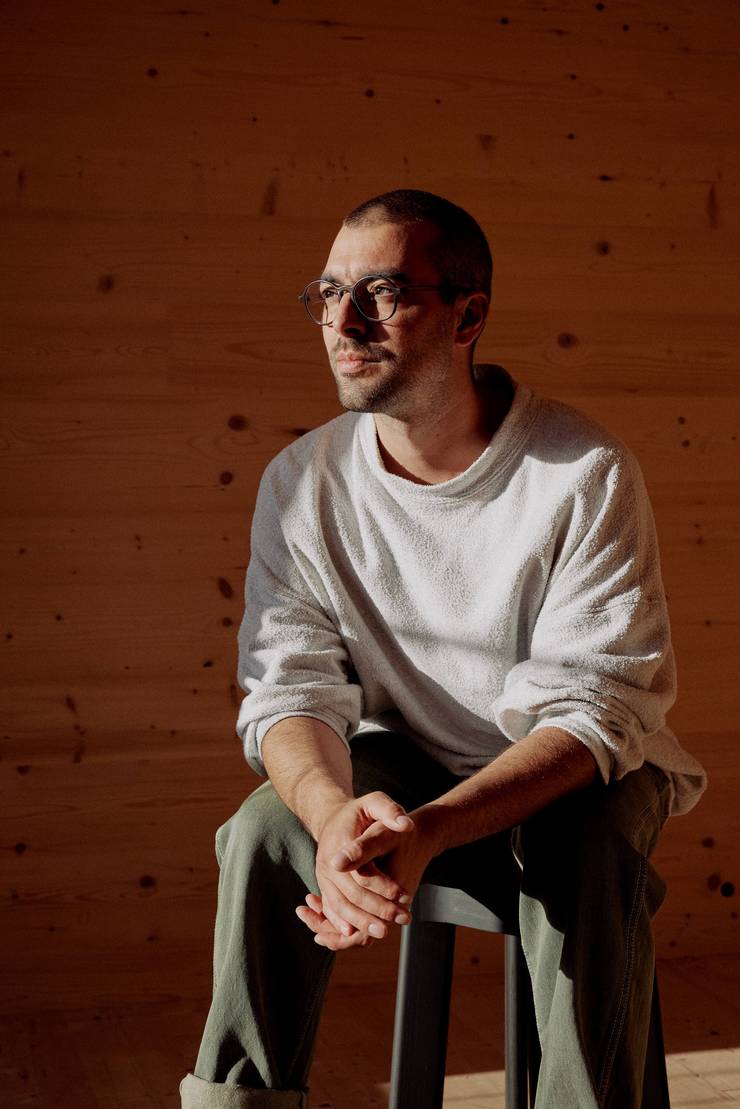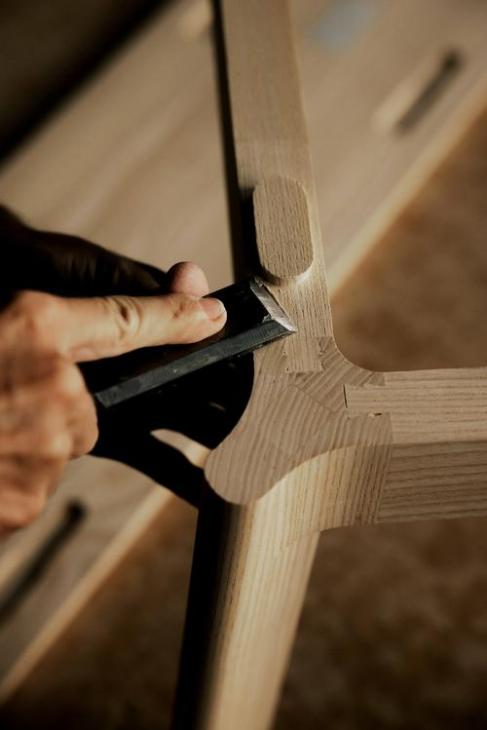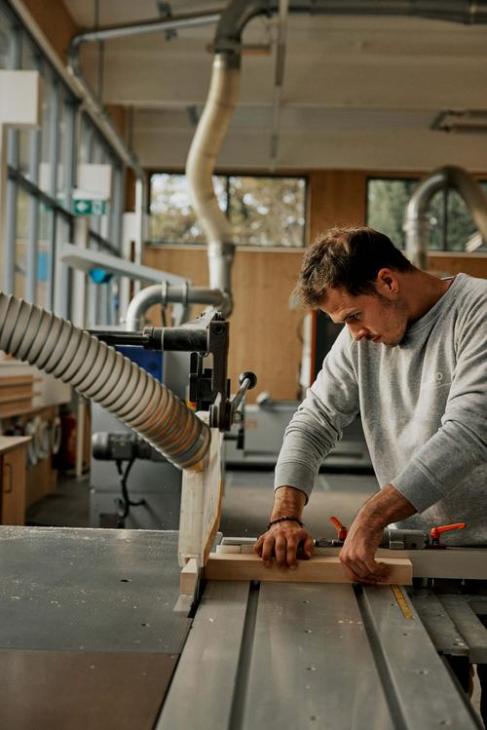The Craft of Carpentry
We meet the product designer and creative lead of Swiss furniture atelier Studio Atebo, Fabio Rutishauser.
Crafting the future
What does craft mean in today’s world? It’s not just about what you do but also how you go about doing it. It’s a universal set of values that includes attention to detail, a hands-on approach and a determination to deliver the highest-quality product possible. These core principles are the same no matter your métier, from the world of banking via bespoke furniture to the robotics innovation of tomorrow. Craft is the ability to gaze both backwards and forwards; to recognise heritage and skill, and combine it with a compelling vision.

Studio Atebo
In this four-part series, Monocle and UBS will examine how these tenets come to life across different industries. First, we meet the product designer and creative lead of Swiss furniture atelier Studio Atebo, Fabio Rutishauser. Atebo – which stands for atelier du bois, or wood workshop – is a collaboration between Zürich-based designer Rutishauser and the artisans at Atebo carpentry factory on the shores of Lake Constance. Having launched its first pieces in 2020, it has produced everything from bookshelves to rolling pins.

Refined design
Rutishauser talks about the ethos behind the studio’s furniture, why design should be timeless and Studio Atebo’s recent pop-up showroom in Zürich.
How did Studio Atebo begin?
It was a dream of mine for a long time to build a furniture brand. The carpentry firm’s side of the story is also important. It was founded in 1997 and was making furniture in solid wood. But then they stopped and moved more into building kitchens and bathrooms. I bumped into one of the brothers from the carpentry shop and he said, “You’re a designer and we want to build furniture in solid wood again. Shall we collaborate?” I thought it sounded like a great idea.
What does ‘craft’ mean to you?
It’s about a depth in every detail. And it’s almost always connected with a kind of slowness or calmness. A deep know-how; a deep understanding of what you’re doing.

How did Studio Atebo begin?
It was a dream of mine for a long time to build a furniture brand. The carpentry firm’s side of the story is also important. It was founded in 1997 and was making furniture in solid wood. But then they stopped and moved more into building kitchens and bathrooms. I bumped into one of the brothers from the carpentry shop and he said, “You’re a designer and we want to build furniture in solid wood again. Shall we collaborate?” I thought it sounded like a great idea.
What does ‘craft’ mean to you?
It’s about a depth in every detail. And it’s almost always connected with a kind of slowness or calmness. A deep know-how; a deep understanding of what you’re doing.
You use both traditional processes and modern techniques…
We try to only use the CNC [computer numerical control] machine when necessary. But it turns out that it is necessary in many of our furniture pieces. For us, it was very important from the beginning to avoid having any additional screws or metal parts; we want to have a wooden solution for everything. But it’s important to add that we don’t keep pieces in stock; this is not mass production. A lot of the process is still about looking, touching and making parts by hand. That’s very important.


How important is it for your furniture to be timeless?
Our bespoke designs are about reducing any unnecessary aspects of a piece without losing its character – so not overloading a design. I don’t like products that are too loud; products should be humble, in a way. We really want to have quality in every detail. That’s where there is a connection between my design approach and the values of the carpentry firm.
Earlier this year, you ran a pop-up showroom in Zürich. What did you learn from meeting potential customers face to face?
This showroom was also about figuring out new ways to get to customers. We realised that there was lots of common ground across interests. So people who are interested in the provenance of food or where a wine is from might also be interested in the story behind our furniture.
© UBS 2023. All rights reserved.
Disclaimer: Fabio Rutishauser and Studio Atebo are not affiliated with UBS AG.


